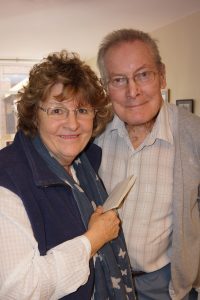 Elderly bodies can not process powerful pills, and many older people are having to cope with the negative side effects of drugs that are too powerful and that interact negatively with one another, said NHS expert, Professor Munir Pirmohamed. (https://www.telegraph.co.uk/science/2019/10/29/elderly-poisoned-overly-strong-doses-medication-warns-nhs-chief/)
Elderly bodies can not process powerful pills, and many older people are having to cope with the negative side effects of drugs that are too powerful and that interact negatively with one another, said NHS expert, Professor Munir Pirmohamed. (https://www.telegraph.co.uk/science/2019/10/29/elderly-poisoned-overly-strong-doses-medication-warns-nhs-chief/)
It’s a flag warning people with elderly parents and relatives to check the drugs they are taking for negative interactions and for side effects. A visit to a pharmacist can help a good deal, even for suggesting the best times for taking different medications. Family doctors generally do not have the time to spend with their elderly patients, or analyse the interactions between the drugs they are prescribed.

It reminds me of the time a wife’s persistence added extra years to her husband, Tony’s life. Tony (in his 70s) came into one of our homes after he and his wife, Sue, had been told he had only months to live. (3 months, Sue had been told.) He’d been wrongly diagnosed as having Alzheimer’s, and had been given the wrong medication as a result. He and his wife saw several consultants and paid privately for brain scans until one eventually showed that he had Lewy Body dementia, a different thing altogether. His medication was changed and he lived for over 2 years in our care home in Leicester. His great joy was that he was able to attend their daughter’s wedding, something that had seemed impossible – all because his wife took the trouble to learn about the disease and pharmaceuticals, and would not give up.
The elderly should be included in clinical trials, says Professor Miles Witham, the national lead for ageing at the National Institutes of Health Research (NIHR). He said, “Historically older people were explicitly excluded from trials. There was a perception that older people were messy and they spoil nice clean trials because a lot of stuff happens to older people, they get ill, sometimes they die, or they find it difficult to come to clinic appointments.’
Yet clinical trials can take years before producing results. In the meantime the number of 85-plus is rising fast, predicted to double in seven years. But with so little money in the system leading to so little care support, checking the drugs they are taking is one of the things that families and friends can do.















